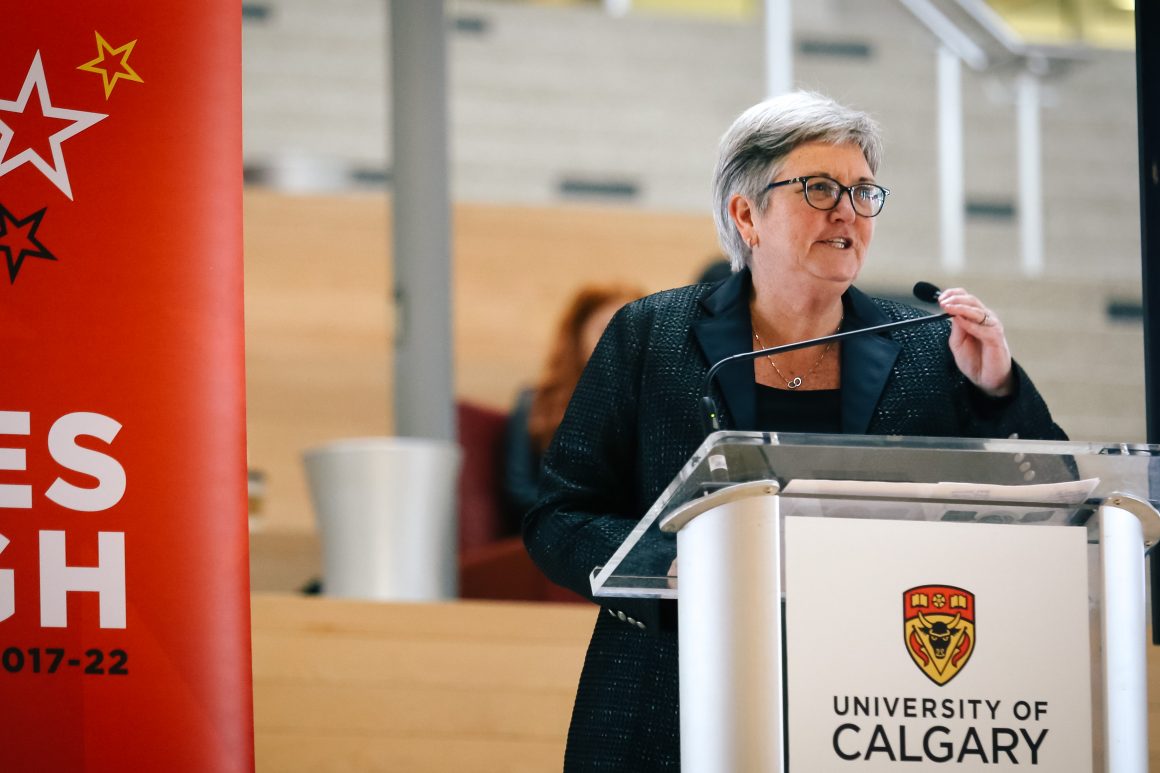
Vice-provost assures SLC that no one will be watching students during exams
By May Domingo, December 13 2020—
Leslie Reid, vice-provost teaching and learning, Brock Kahanyshyn, chief information officer and Sarah Eaton, associate professor at the Werklund School of Education and educational leader in residence specializing in academic integrity, presented their research on online proctoring to the Students’ Legislative Council on Dec. 1.
Reid officially confirmed that there will not be any online proctoring during exams for the upcoming semester. This conclusion was arrived at after extensive consultations with the Students’ Legislative Council (SLC) as well as staff and students. Research done by Eaton and several graduate students revealed that e-proctoring became “the number one mental health issue among students during COVID-19.”
SLC had several questions for the presenters.
SU president Frank Finley, Faculty of Arts representative Justin Gotta and Faculty of Veterinary Medicine representative Douglas Doyle-Baker expressed their concern regarding training for staff on how online assessments should be handled.
Reid said that the institution is “really pouring a lot of energy” into figuring out what their team and the U of C as a whole can do to prepare staff for another few months in online teaching and assessment.
Eaton called the issue a “brain bender,” noting the technological limitations that some staff members may possess. “It’s not easy for some people, but we are providing a lot of support. I’m really pushing the notion that ethical assessment has to be part of academic integrity.”
With that in mind, vice-president academic Semhar Abraha asked whether U of C has the staffing capacity to oversee exams.
Reid said, at the moment, capacity is not there, noting it’s one of the factors that informs their decision-making moving forward.
“Even if we wanted to move forward we can’t,” she said. “We don’t have the policies in place. We don’t have the people and the resources in place and all of those need to be in place before any kind of solution around new proctoring is rolled out.”
Further questions on online assessments included student stress due to inability to go back and revisit previous questions due to the structuring of some exams on D2L and timing issues.
Eaton called these an “ethical conundrum.” Though she admits that she needs to look into this issue further, she believes it is ultimately up to the instructors.
“There are elements of assessment that individual instructors have some control over in terms of their academic freedom and how they believe it’s best to assess students,” she says. “Sometimes, that aligns with best practices for pedagogy and sometimes it doesn’t.”
Challenging that statement, Haskayne School of Business representative Shagufta Farheen brought up a conversation she had with a faculty member, noting this faculty member told her it was the Taylor Institute that recommended a one-question-per-page exam system.
Reid noted that this issue may be an “individual miscommunication.”
Haskayne School of Business representative Aly Samji brought up exam timing.
“If a student needs to write at a different time, that opportunity is available to any and all students, for reasons of being in a different time zone or having a child, or caregiving responsibilities […], it needs to be stated in the course outline when a common assessment time is,” Reid explained. “There needs to be a process also stated in the course outline about what a student does, or what the process for writing at a different time within that 24 hour period.”
SLC encourages students to reach out to the executive or faculty representatives with any issues regarding exam practices.
For Winter 2021 however, there will be no e-proctoring.
Agendas, minutes and upcoming meetings for SLC can be found online.
